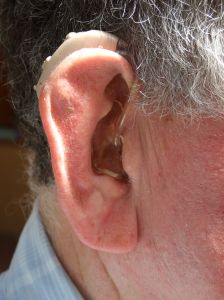Hearing loss can lead to depression, according to a study conducted by researchers at the American National Institute of deafness and other communication troubles.
 Hearing loss can cause isolation and depression
Hearing loss can cause isolation and depression
An American study published in the « JAMA Otolaryngology – Head & Neck Surgery » journal links hearing loss and depression.
Indeed, the results of the study show depression can be one of the consequences of hearing loss especially among women and people aged over 70 and more. The study focused on data analysis from a national inquiry on health and nutrition in the United States.
18.000 people aged over 18 responded. Results showed that:
- 5% of adults with very good hearing abilities feel depressed;
- 7% of adults with good hearing abilities feel depressed:
- Meanwhile, 4% adults with hearing impairments feel depressed.
It has to be noted that deaf respondents do not feel depressed: only 0.06% of them say they feel depressed.
The loss of hearing abilities often causes isolation because communication with others becomes harder. The weaker social links get, the more individuals risks falling into depression.
James Firman, general director at the National Council on Aging, explains that people with hearing impairments, especially those with no hearing aids, struggle to communicate in familial situations, social encounters and in the workplace: thus, they often fall into isolation and sometimes depression.
Screening tests are vital, as well as staying in shape and taking care of your hearing.
Published by the Editorial Staff on

